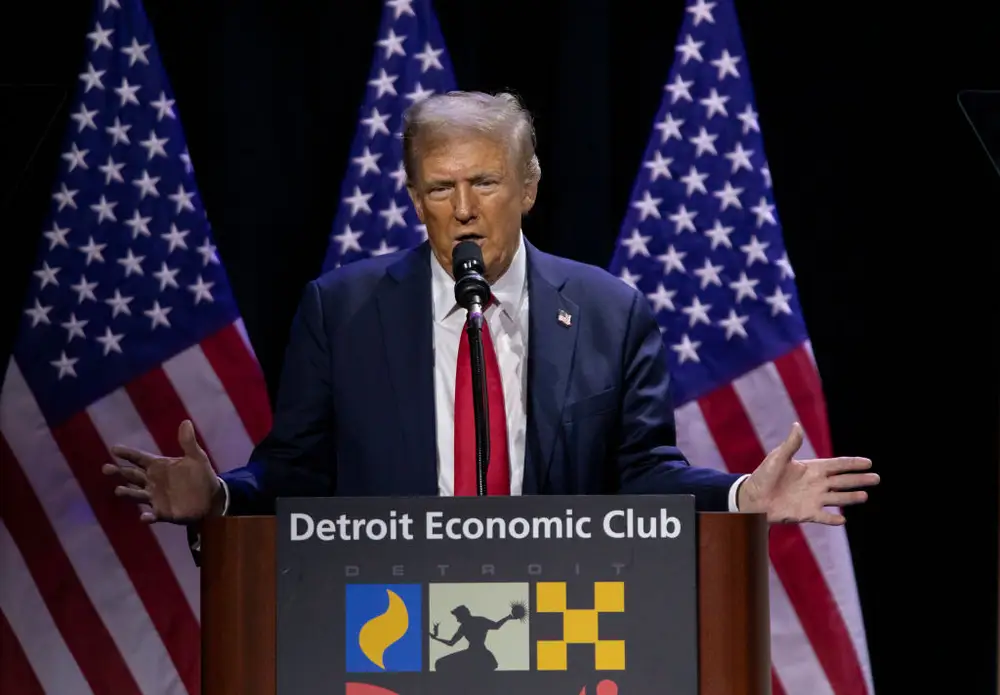Why small stocks are ‘ripe’ for gains ahead of the November election, according to Cantor Fitzgerald

Republican presidential nominee, former U.S. President Donald Trump, speaks at the Detroit Economic Club on October 10, 2024 in Detroit, Michigan.
Small-cap stocks are set for a catch-up amid a confluence of perfectly aligned factors ahead of the presidential election, Cantor Fitzgerald says.
Small-caps have fallen behind in the recent market rally, with the Russell 2000 up 2.5% in the last month as the S&P 500 has soared almost 4%.
That could change as small stocks typically do well close to presidential elections. Recent polling in favor of Donald Trump also bodes well for the sector, Cantor Fitzgerald says.
The Russell 2000 has been a “major laggard,” the firm said. Stocks in the index “could be ripe for bottom fishing” amid the current bull market, the firm’s chief strategist Eric Johnston said in a Monday note.
Johnston says the Russell 2000 small-cap index has historically seen big moves around presidential elections, with a 6.5% or greater rally in the 13 days after the election in four of the last 11 election years. That effect is often even greater into the end of the year, with a 12% or greater rally into year-end in four of those years.
Johnston acknowledges that each election year poses unique conditions, but the data shows there is potential for “very large up moves” in The Russell 200 around elections.
Johnston also forecasts increasingly higher odds of a Trump win, which would benefit small stocks even more. He cites data from RealClearPolitics, which shows a Trump win in a no-toss-up scenario, with Trump winning 302 electoral votes compared to 236 for Vice President and Democratic nominee Kamala Harris.
And that’s not to mention Trump’s track record of outperforming predictions in swing states in both 2016 and 2020, which means Harris needs to win in key states by more than current polling shows, Johnston says.
He acknowledges that politics can change quickly, but that with no more debates scheduled, it reduces the opportunity for Harris to change momentum, as Trump often has the upper hand in interviews and rallies.
“Overall it looks like there are very few opportunities to change the momentum that is currently in Trump’s favor,” Johnston says.
Johnston says a Trump win would benefit domestic companies via lower tax rates, high tariffs on China, and less small business regulation, among other policies. Those factors would increase investors’ confidence and encourage more rotation into riskier, underperforming small stocks.
Johnston says those macroeconomic conditions set small caps up to do fine relative to large caps even if Harris wins, since the market is not pricing in much of a Trump win anyway.
Johnston’s comments come as others have warned of uncertainty looming over markets ahead of the upcoming presidential election. With the polling still close, some have predicted a bout of market volatility that will subside once the outcome is determined after voters cast their ballots.






